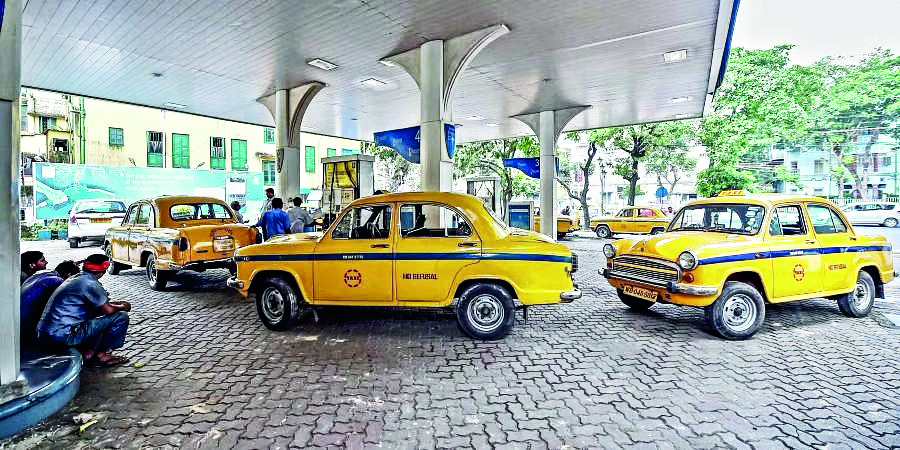Metered taxis can be coloured yellow now, says Transport dept

Kolkata: In a move aimed at revitalising the city’s iconic yellow taxis, the state Transport department has issued a notification allowing new metered taxis to be coloured yellow.
The fleet of classic yellow taxis, primarily consisting of Ambassador cars, was once considered the ‘king of the roads.’ However, with the Ambassador’s production having ceased in 2014 and following the 2008 Calcutta High Court ruling that prohibited commercial vehicles older than 15 years from operating in the city, the fleet is rapidly dwindling.
According to Transport department sources, the number of yellow taxis is expected to fall below 3,000 by 2026, with about 1,500 vehicles set to be decommissioned as they reach their 15-year service limit. The new decision seeks to preserve the legacy of these iconic vehicles, as yellow Ambassador taxis have been deeply intertwined with Kolkata’s heritage, appearing alongside landmarks such as the Howrah Bridge and Victoria Memorial.
In response to concerns from organisations advocating for the preservation of Kolkata’s automotive heritage, the Transport department has revised its rules, allowing new metered taxis to be painted yellow, alongside the existing navy blue and white. This update amends an August 2013 directive, which had mandated a navy blue and white combination for new metered taxis.
Further changes have been introduced to the West Bengal Motor Vehicles (WBMV) Rules, 1989. A new provision for the painting and colour of motor cabs allows any company, firm, or individual to register vehicles in any colour of their choice, provided they intend to register 20 or more vehicles in a single calendar month (thirty days). These vehicles can also feature custom insignia, graffiti, or rooftop boards, subject to prior written approval of the design from the Transport Department. This provision will be inserted into Rule 270(2) of the WBMV Rules, 1989.
Nawal Kishor Shrivastav, convenor of the WB Taxi Operators Co-ordination Committee (AITUC), criticised the new provision. “This allows the free entry of the corporate sector into the transport sector of the state.
The government has made a one-sided decision without consulting the concerned organisations in this matter.”



